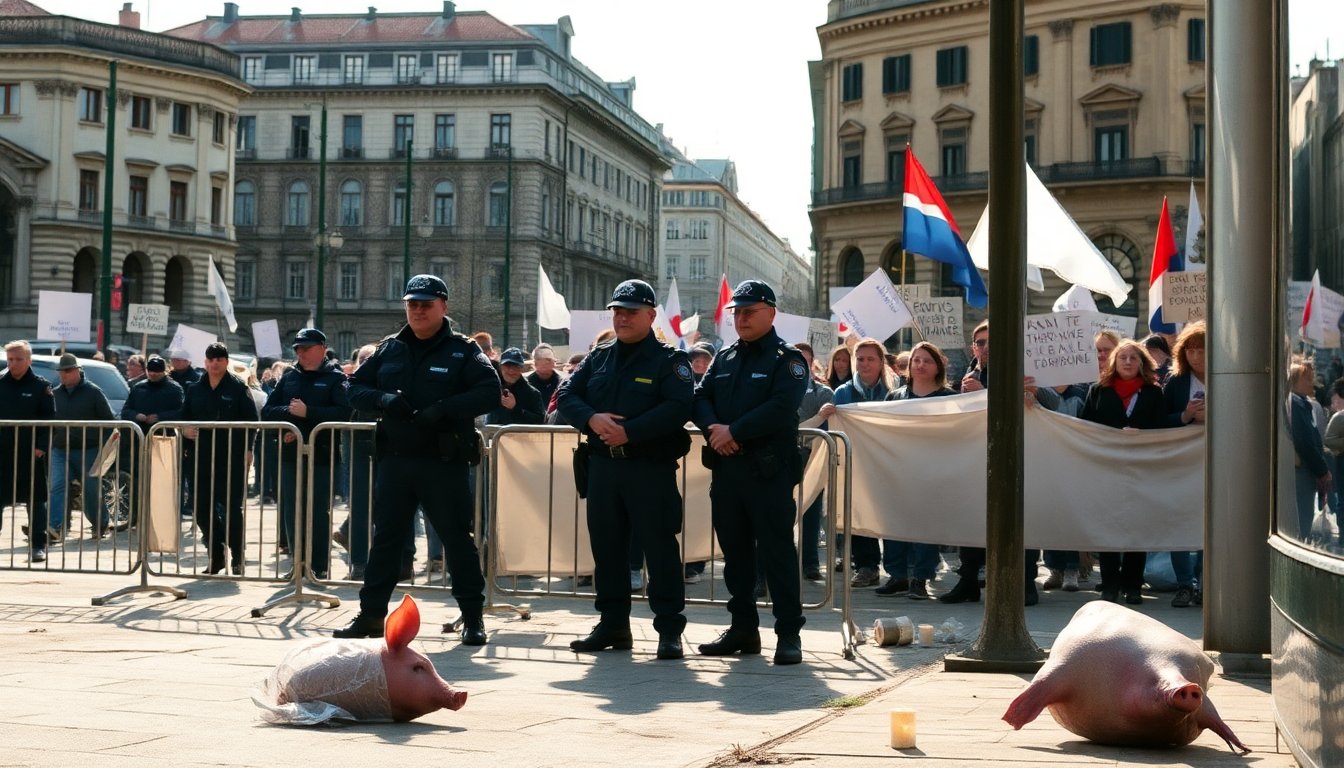Table of Contents
In a troubling development, Serbian authorities have detained 11 individuals suspected of committing significant hate crimes across major European cities, including Berlin and Paris. These actions, involving the disturbing use of pig heads and green paint, are believed to be orchestrated to incite conflict among religious communities amidst ongoing tensions stemming from the war in Gaza.
The Serbian Ministry of Interior revealed that the primary suspect, identified only by the initials M.G., remains at large. This individual is alleged to have acted under the directives of an unspecified foreign intelligence service, further complicating the narrative surrounding these incidents.
Details of the hate crimes
From April to September, the detained individuals participated in a series of provocative acts. Reports indicate their activities included defacing the Holocaust memorial in Paris with green paint, as well as vandalizing several synagogues and a Jewish restaurant. Such actions have drawn widespread condemnation and raised alarms about the potential for escalating violence between religious groups.
Incidents in major cities
Additionally, the group was implicated in placing pig heads near Muslim places of worship in the Paris area and even in front of the iconic Brandenburg Gate in Berlin. These acts are perceived as calculated attempts to incite hatred and promote discrimination based on race, religion, and ethnic differences.
Political implications and foreign involvement
The arrests have broader implications, particularly concerning Serbia’s political landscape and its relationship with the Kremlin. The ruling Serbian Progressive Party has been known for its close ties with Russia, and the government has circulated a controversial report from the Russian Foreign Intelligence Service (SVR). This report accuses the European Union of instigating a color revolution in Serbia through support for ongoing anti-government protests.
Serbia’s reluctance to impose sanctions on Russia following its aggressive actions in Ukraine raises questions about the nation’s geopolitical stance. Despite international pressures, Serbia continues direct flights to Russian cities like St. Petersburg and Moscow, indicating a strong allegiance to the Kremlin.
Opposition voices and rising tensions
Opposition lawmakers have expressed concerns about the political situation in Serbia, with some reporting violent reprisals against demonstrators by masked assailants. This atmosphere of fear and repression has fueled ongoing protests and calls for government accountability.
In a related context, Milorad Dodik, a prominent nationalist figure with close ties to Moscow, faces possible removal from office amid widespread discontent. His actions have been scrutinized for contributing to the divisive atmosphere in Bosnia and beyond.
Broader global context
These incidents reflect the increasing complexities of international relations and the role of foreign influence in domestic issues. For instance, a recent attack in Tirana attributed to a group associated with Iran’s Revolutionary Guard highlights the lengths to which entities will go to retaliate against nations harboring dissidents.
Such events underscore the delicate balance of power and the influence of foreign intelligence in shaping national narratives. The dynamics of these relationships remain critical as nations grapple with internal strife and external pressures.
The Serbian Ministry of Interior revealed that the primary suspect, identified only by the initials M.G., remains at large. This individual is alleged to have acted under the directives of an unspecified foreign intelligence service, further complicating the narrative surrounding these incidents.0


